Have you ever eaten something, hoping to enjoy every delicious bite, only to feel immediate regret or guilt afterwards? In a culture that leads us to believe that there are “good” foods and “bad foods”, “clean eating” implying that anything else is dirty or wrong, it makes sense that these feelings of regret would come up when we’ve feel we’ve made the “wrong” food choice. But did you know that all foods are in fact morally equivalent? Today on the blog, we dive into what food regret is, why we might feel food regret, and 4 steps to let go of this awful feeling for good.
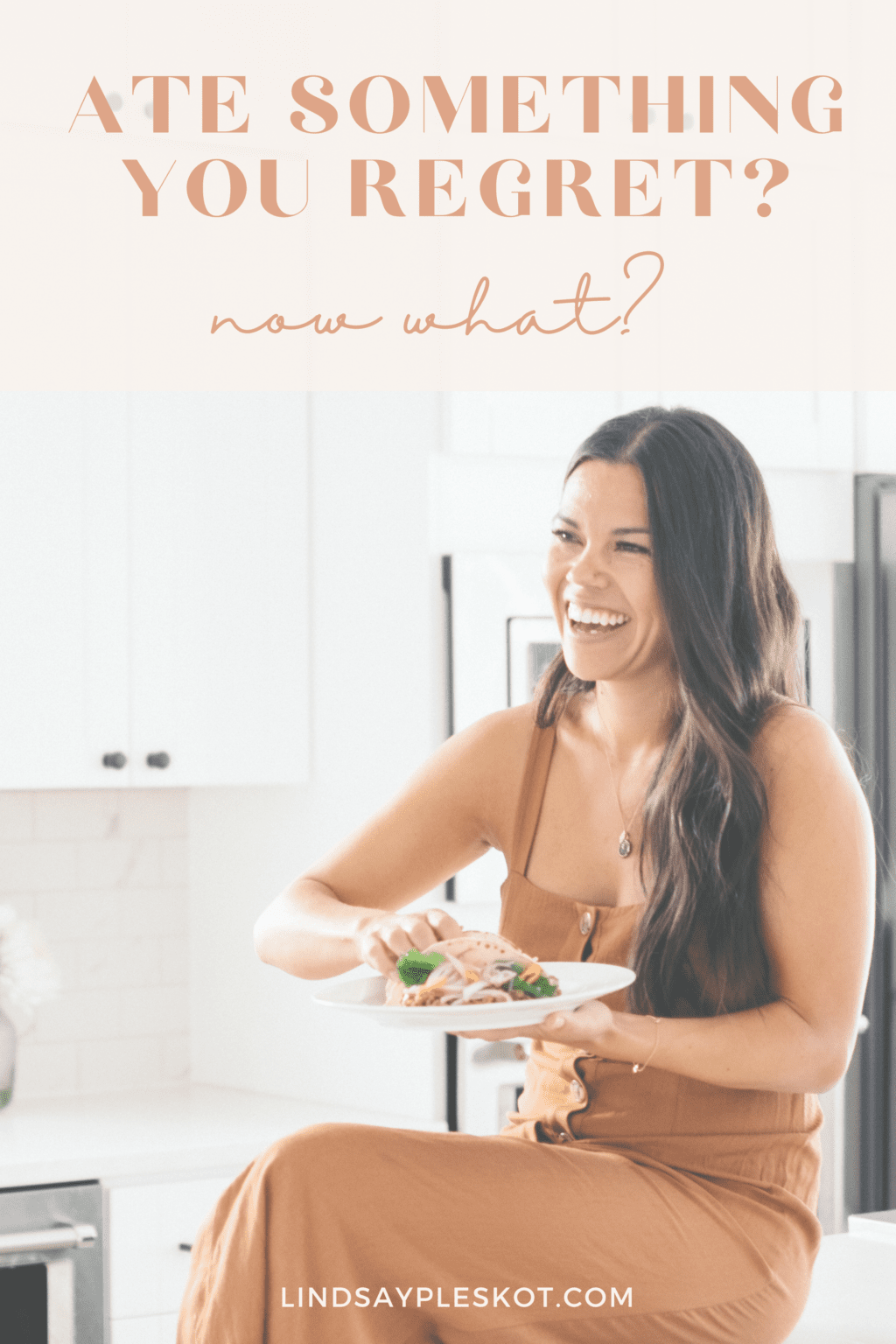
If you’ve ever felt sadness, remorse, or disappointment over what or how much you ate, you’re not alone. That pit in your stomach or feeling of despair is likely the emotion of regret, and can often show up when we truly believe that we have made an eating mistake or picked the wrong choice. Feeling regret around food makes sense, especially when we are constantly bombarded with messaging in the media, often affecting us subconsciously, that emphasizes black and white thinking – where each choice you make is either good or bad, clean or unclean, or perfect or imperfect, with no in-between.
Today on the blog, guest author and intuitive eating dietitian, Ally Choo, walks us through how we can permanently step out of this all-or-nothing mentality, learn to live in the gray, and truly make peace with food. In this post, we cover what food regret is, why we may feel food regret, and 4 things you can do when you feel food regret.
In this blog we will cover:
While you may regret your food choices for a number of reasons, two common reasons that you may be regretting what you ate is due to having a fear of weight gain and a fear of food itself. Read more about the impacts of fat phobia, weight stigma, and fear of food here.
It’s normal to feel guilty when we overeat, and often the result is making assumptions regarding our health and who we are as individuals when we do so. To help reframe and let go of this guilt, it may be helpful to consider redefining what health means to you, pulling in mindfulness, and seeking support. Find out more here.
What is food regret?
Regret is a universal human emotion, and like all emotions, it serves a purpose. Regret is our brain’s way of telling us to pause and reflect on our choices, because our actions may actually be leading to negative consequences. Regret usually manifests when we’re living out of alignment with our core values, such as honesty, respect, and loyalty. For example, this might come up for us if we’ve lied to a loved one, betrayed a close friend, or acted in a way that was disrespectful to ourselves or others.
While regret may indicate that we need to re-evaluate our actions, food regret may actually be more of a by-product of diet culture. This food regret might come up for you after an uncontrollable bout of night time snacking, taking an extra slice of pizza or polishing off a pint of ice cream. It might also come up if you’ve eaten until physical discomfort, if you’ve ‘blown’ your diet, or if you’ve eaten a forbidden food.
Diet culture, and the dieting industry, thrive on perpetuating the false narrative that there is a ‘right’ and ‘wrong’ way to eat, with the ‘right’ way of eating leading to thinness, success, health, and happiness, and the ‘wrong’ way of eating leading to fatness, failure, illness and despair.
And what does diet culture get out of this? Literally BILLIONS of dollars (the diet industry is over a $70 billion dollar per year industry!). There is a lot of money to be made on shame and regret about our food choices. If we believe that we’re broken, of course we’re going to want to fix it.
Ready to Transform Your Relationship with Food?
Explore not just what you eat but why you eat, how you feel when you eat and any patterns that affect how you feel or impact any choices you make and start your journey to food freedom today!
Why do I feel food regret?
If you’re wondering why you might be feeling food regret, it may be due to the effects of fat phobia in our society. Fat phobia is the fear of fat bodies and the false belief that people of higher weights are morally and physically inferior to their thin counterparts. The roots of fat phobia can be seen stemming from religion, racism, and the patriarchy, which Christy Harrison, RD, explains excellently in her book ‘Anti-Diet.’
In a diet culture that worships thinness and equates thinness with moral virtue, higher status, and health, it makes sense why we may feel like any eating decision that may lead to the opposite is something we should fear and atone for.
Another reason we may feel food regret is if we believe that our actions will negatively impact our health. This may be due to the fear of weight gain or the fear of food itself.
Our learned fear of food and forced hypervigilance may be due to how medical nutrition research is reported in the media, as the research is often taken out of context and accompanied with click-bait headlines. Add on top the fact that many consumers are not taught how to understand the concepts of risks and benefits, probability, and the difference between cause and association, no wonder many of us are under the impression that food will either kill us or heal us.
The fear of weight gain is another story. While much of the ‘obesity’ research out there blames negative health outcomes (including higher levels of cortisol, blood pressure, inflammation, and metabolic risk) on having ‘too much’ body fat, there is a large body of research that shows that these negative outcomes may actually be due to weight stigma, ie. the discrimination imposed on someone due to their weight and size. Additionally, studies have shown that these results happen regardless of BMI (ie. occurs even in normal or underweight BMI categories), meaning that it’s unlikely that the amount of body fat itself is a cause.
We dive more into the harms of these social justice issues in our blog post How to Spot Diet Culture here.
4 Things to do when you regret eating something
Okay, so now that we’ve unpacked what food regret is and why we may feel regret, let’s talk about what we can do to release some of this disappointment and stop feeling guilty after eating for good.
1 – Reframe our concept of ‘health’
Often when we think of health, we think of only our physical health. However, health has many different dimensions to it, including emotional, spiritual, environmental, mental, and social, alongside physical (see image below).
A few questions I often post to my clients are:
- If you’re only focusing on your physical health while the rest of these areas suffer, is this truly healthy?
- Is obsessing over food, over-exercising to the point of exhaustion or injury, or isolating yourself for fear of losing control around food, truly getting you to your optimized goal of health?
By understanding and re-framing what health truly means to us, we can bring in self compassion and learn to step out of the all or nothing mentality.
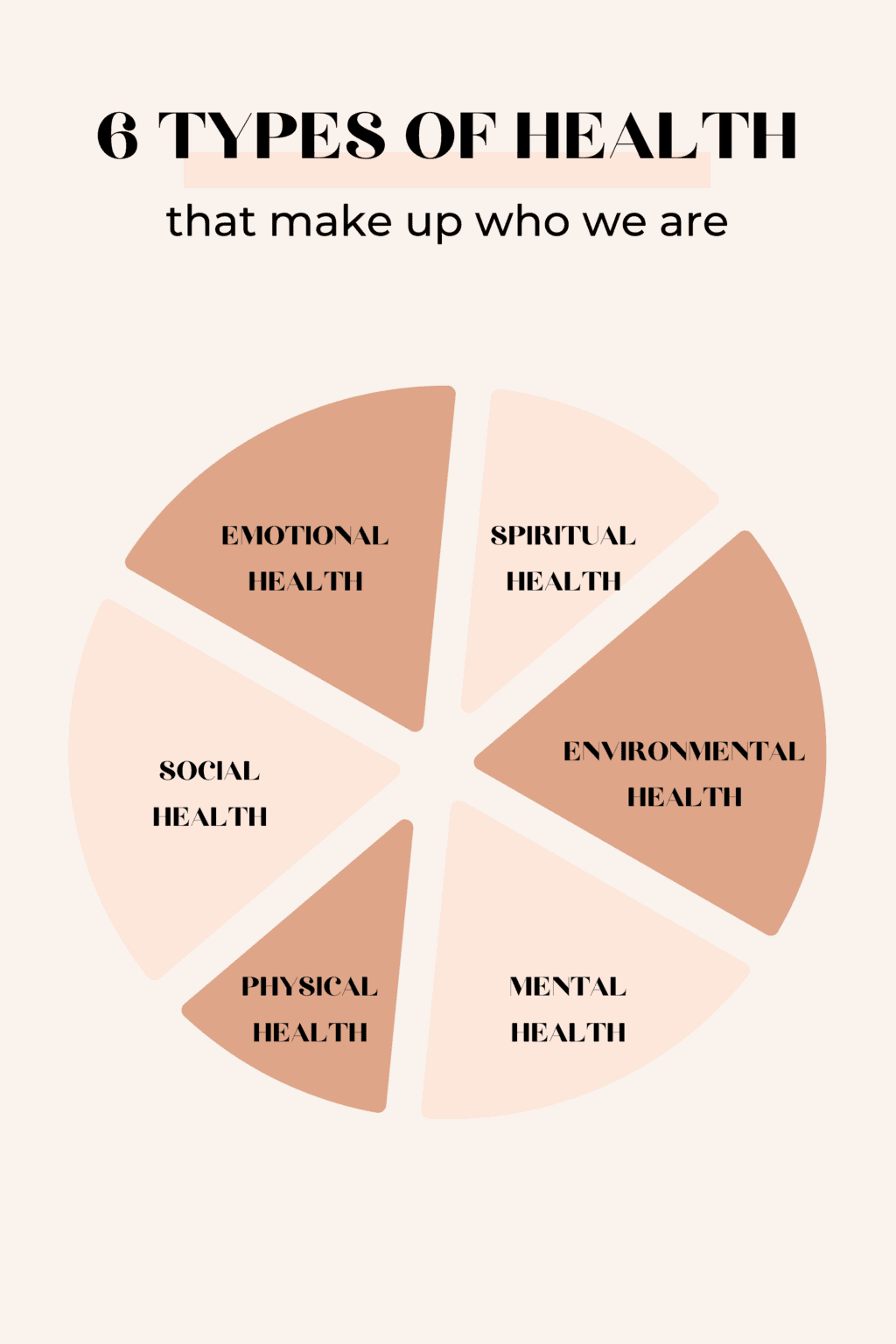
2 – Understand that nutrition has it’s place, however it’s only one small piece of the puzzle
As a registered dietitian, I love talking about food and I believe in the importance nutrition can play in preventing chronic diseases and supporting our well-being. However, when we’re approaching nutrition from a place of shame, deprivation, or regret, it can really be used as a weapon of self-control vs. a tool for self-care.
One thing we always like to remind our clients is that one meal, one snack, one day, heck even one weekend, will not make or break your health. Food is so much more than fuel! It’s a way to socialize, create memories, and foster deep and meaningful connections, which we know is so important for our health. For example, research done at Brigham Young University found that social isolation was more lethal than smoking fifteen cigarettes a day.
3 – Incorporate mindfulness
If you’ve been with us for a while, you know that we are all about mindfulness and neutrally observing what’s coming up for us, without judgment. If you’re noticing critical thoughts or big feelings of regret after eating, it’s absolutely normal and okay. The first step to making any change is self-awareness, because once you see it, you can’t unsee it. Hold space for some of these thoughts and beliefs that are coming up and pause to reflect on:
Where did these beliefs come from?
- Are they 100% true?
- Why do I have this belief?
- Is this belief getting me close to or further away from how I truly want to feel in my life day to day?
Need some help getting started? Check out these blog posts and resources to help you on your journey:
- Mindful Eating: A Beginner’s Guide
- Why am I eating? The 3 types of hunger
- 5 Steps to Stop Eating Snacks When Bored
- Shutting Down Food Shamers
- 10 Principles of Intuitive Eating – What is it and is it right for you?
- Health At Every Size
4 – Find support and community
Sometimes challenging diet culture and combating the ‘good’ vs ‘bad’ narrative of food and eating is too difficult to do on your own. If you’re looking for a safe space to unpack and unlearn a lot of these old beliefs while integrating feel good nutrition, it may be helpful to work with a counselor or dietitian who is trained in Intuitive Eating or join us in our supportive online community inside the Make Food Feel Good Program to help you on your journey.
Now over to you
- When was the last time you felt food regret?
- Are there any particular foods that bring this feeling up for you?
- Any other questions we may have missed?
Share with us in the comments below or take a screenshot and share it with us over on Instagram tagging @lindsaypleskot! And if you found this post helpful, pass it along to a friend or family member who could benefit from it too!
Looking for more support?
Looking for support to end the diet cycle, trust your body and learn the nutrition that feels amazing for YOU? Learn more about my Make Food Feel Good Program here where hundreds of women have found lasting success through my proven framework and step-by-step guided support. Let’s Chat!
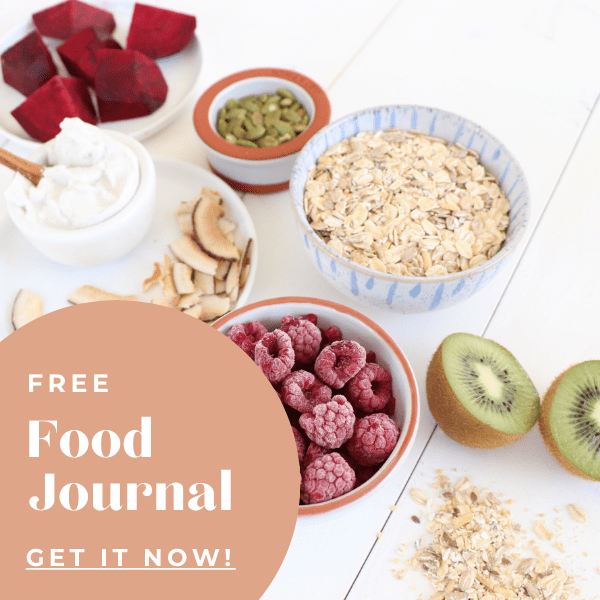
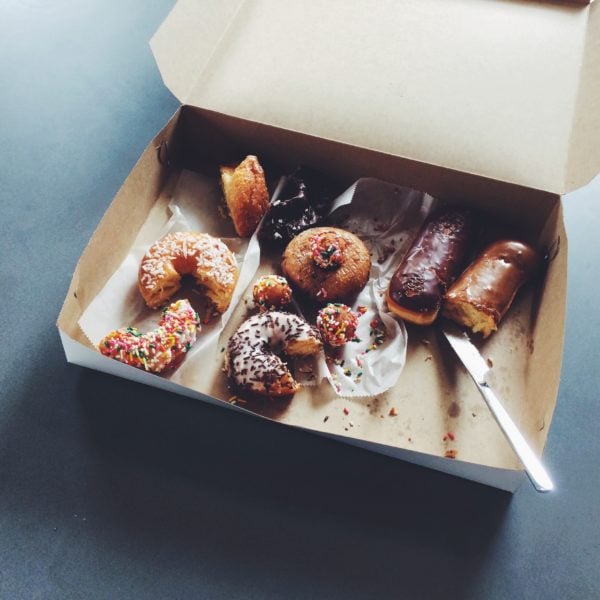
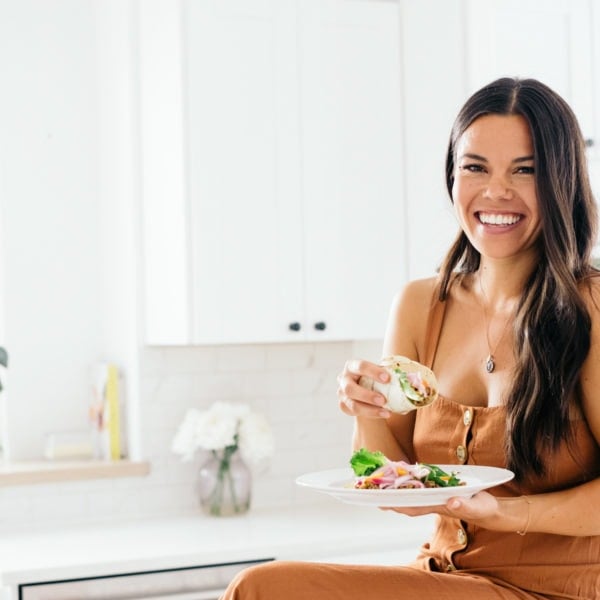

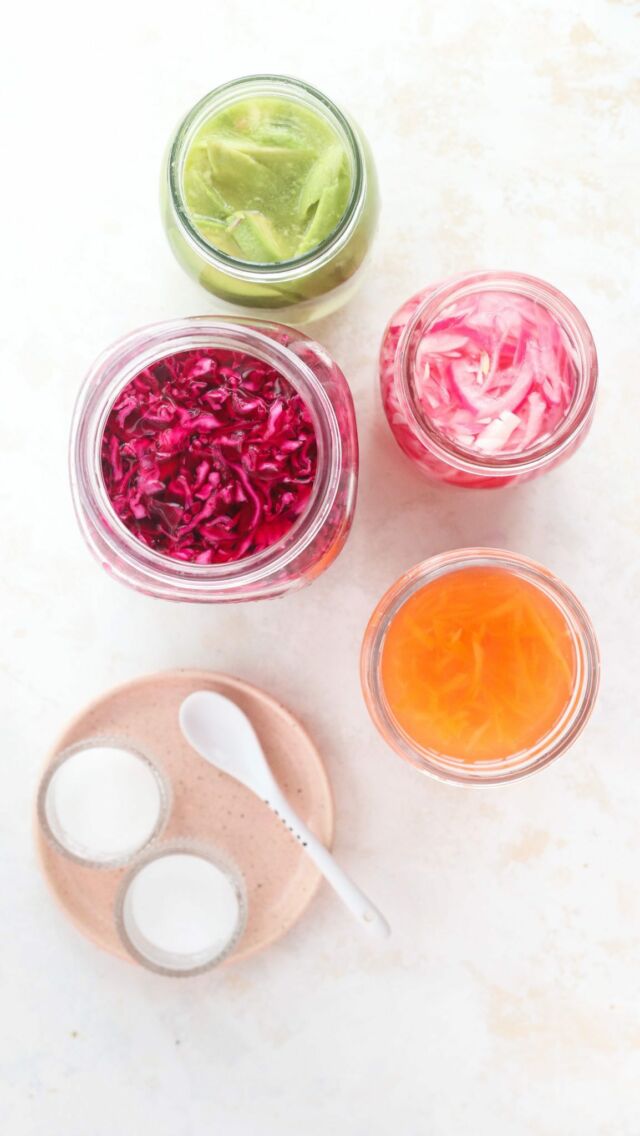

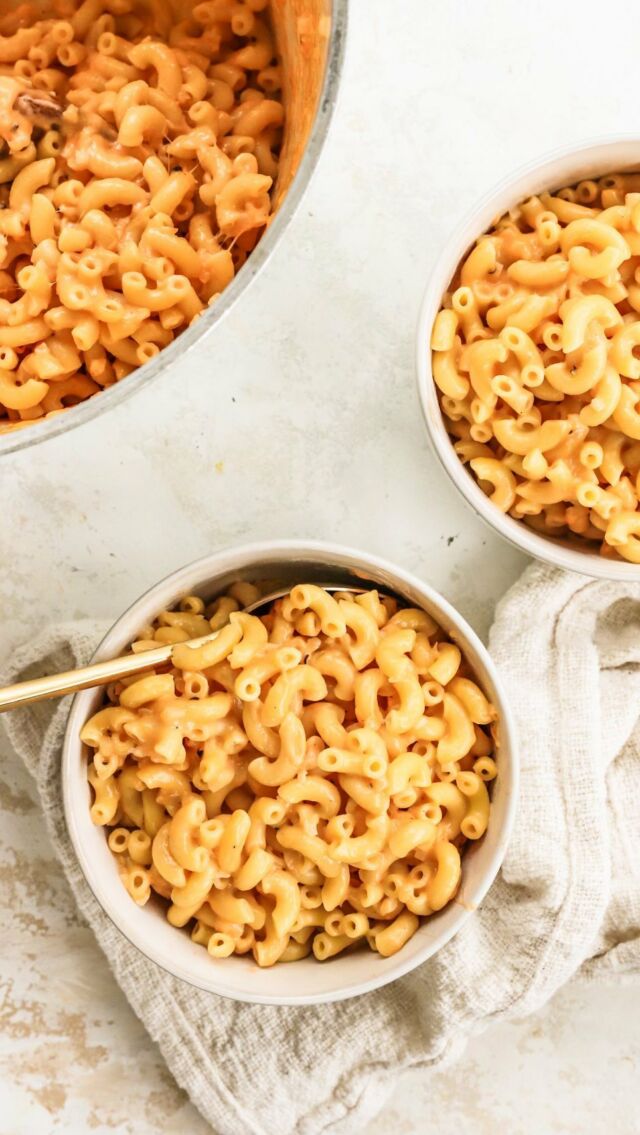


Leave a Comment & Rate this Recipe